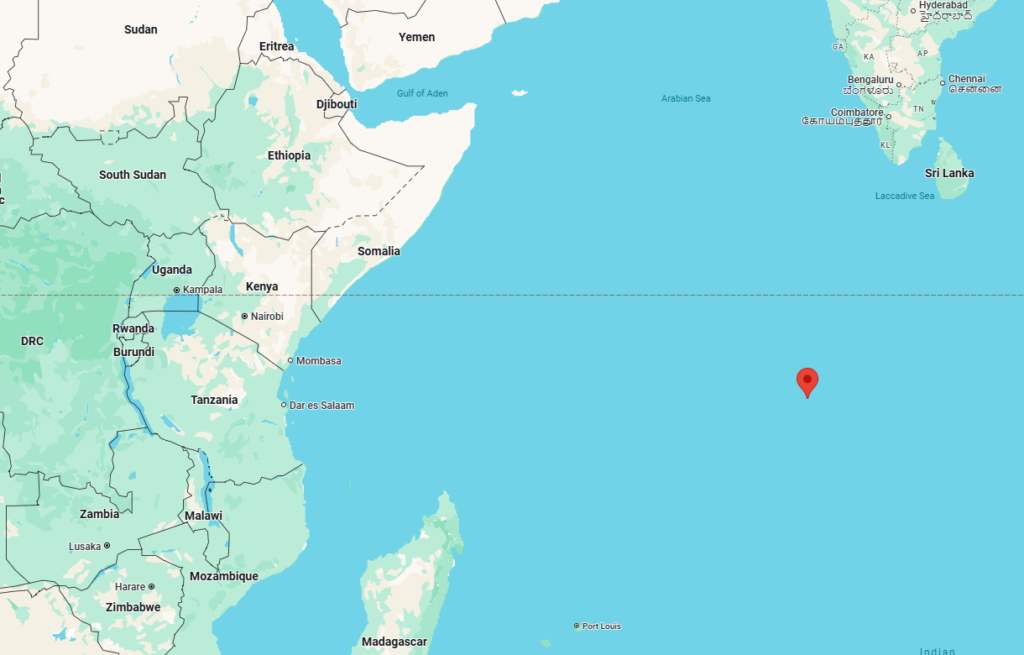In a significant humanitarian move, the UK has welcomed a group of migrants who had been stranded on Diego Garcia, part of the remote Chagos Islands, for over three years. These individuals, approximately 60 in number, including 16 children, had been living in makeshift camps under harsh and dire conditions. Their relocation marks the end of years of legal battles and a humanitarian crisis that demanded immediate resolution. However, this story goes beyond the headlines—it reflects the complexities of global migration, colonial legacies, and the challenges of balancing national policies with international humanitarian obligations.
The Context: Why Were They Stranded?
The migrants, primarily Sri Lankan Tamils, arrived on Diego Garcia in October 2021, seeking asylum. As the first group ever to file asylum claims on the British Indian Ocean Territory (BIOT), they found themselves in an unprecedented legal limbo. Diego Garcia, a strategically significant island hosting a joint UK-US military base, was never designed to accommodate civilians, let alone vulnerable asylum seekers.
Over the course of their stay, conditions deteriorated. Reports from advocacy groups and legal representatives painted a grim picture: makeshift camps, hunger strikes, instances of self-harm, and allegations of sexual assault. Some individuals were transferred to Rwanda for medical treatment, further highlighting the inadequacy of the facilities on the island.
The UK’s Humanitarian Intervention
The UK government’s decision to relocate the migrants to Britain provides temporary relief. Each individual will be allowed to remain in the UK for six months, during which they will receive financial support from the Foreign Office. This intervention has been welcomed by human rights advocates. Tessa Gregory, a lawyer representing some of the migrants, described the decision as “the only sensible solution to end the humanitarian crisis.”
However, while the move addresses the immediate needs of this group, questions remain about their long-term future. After the initial six months, their immigration status and pathways to permanent residency or asylum are unclear. Moreover, the episode raises broader issues about how the UK, and other nations, handle migration crises in geographically and politically sensitive regions.
The Legacy of the Chagos Islands
The Chagos Islands, officially known as the British Indian Ocean Territory, are at the center of a long-standing sovereignty dispute between the UK and Mauritius. In 1968, the UK forcibly removed the native Chagossians to establish the military base on Diego Garcia, an act widely criticized as a violation of human rights. The Chagossians have since fought for their right to return, a struggle that parallels the plight of the migrants now seeking refuge.
In the coming years, sovereignty over the islands is expected to transfer to Mauritius, adding another layer of complexity. Once this transition occurs, future migration issues may fall under Mauritian jurisdiction, potentially leading to changes in how such cases are managed.
The Future of Migration Management in the Region
The UK’s handling of this crisis also reflects a broader shift in its migration policies. New measures have been introduced to prevent similar situations from arising. For instance, any future migrants arriving via the Chagos Islands will be redirected to St Helena, another remote UK territory, located 5,000 miles away. This preemptive step signals a move to deter migration through non-traditional routes, but it also raises concerns about accessibility and the adequacy of support provided to asylum seekers in such isolated locations.
Broader Implications
The Chagos migrants’ case underscores several pressing issues:
- Humanitarian Challenges in Remote Territories: Remote islands like Diego Garcia are ill-equipped to handle migration crises, necessitating better planning and investment in infrastructure to address unexpected arrivals.
- Balancing National Security and Humanitarian Obligations: Diego Garcia’s primary role as a military base complicates its use as a temporary asylum location, highlighting tensions between strategic priorities and human rights.
- Global Migration Trends: As migration routes evolve, wealthier nations like the UK must adapt their policies to respond to new patterns while upholding their international obligations.
- Colonial Legacy and Responsibility: The UK’s historical actions in the Chagos Islands continue to influence its responsibilities in the region. Addressing these lingering issues requires not only political will but also a commitment to justice and reconciliation.
My Perspective: A Moment for Reflection and Action
The UK’s decision to relocate the Chagos migrants is undoubtedly a positive step, but it must not be the end of the story. This case highlights the gaps in global migration systems and the urgent need for proactive solutions. In my view, the UK has an opportunity to lead by example, crafting policies that prioritize human dignity while addressing the realities of resource limitations and geopolitical considerations.
However, the relocation also raises critical questions: Will these migrants be given a fair chance to rebuild their lives in the UK? What happens after six months? And how will the UK address similar crises in the future? The answers to these questions will shape the country’s reputation as a global leader in humanitarian efforts.
For now, the relocation of these migrants serves as a reminder that behind every policy decision are human lives—lives that deserve not only safety but also hope and opportunity. The UK, like the rest of the world, must rise to meet this challenge with compassion and vision.
Source










